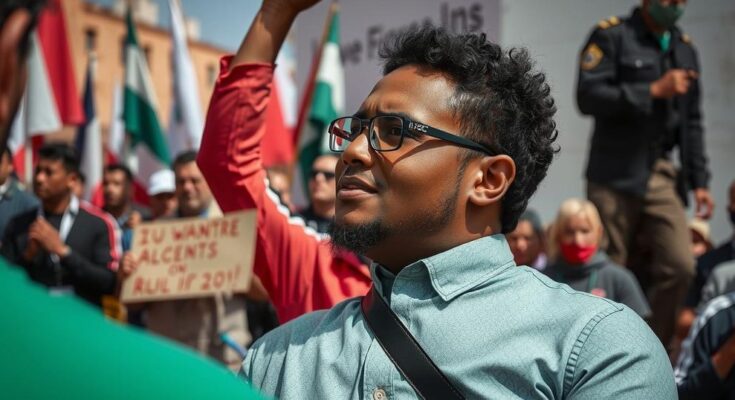Said Ait Mahdi, a prominent Moroccan activist, has been sentenced to three months in prison for leading protests against the government’s earthquake response, which resulted in substantial casualties and destruction. The case has drawn criticism from human rights advocates who view his conviction as politically charged and indicative of a broader trend of governmental repression against dissent in Morocco.
In a troubling development for civil liberties in Morocco, prominent activist Said Ait Mahdi has been sentenced to three months in prison following protests against the government’s response to a devastating earthquake. The court ruling, which also imposes a financial penalty exceeding $1,000, has been criticized by human rights groups who view the charges against him—including defamation, assault, and inciting an unauthorized demonstration—as politically motivated. His activism emerged in the wake of the earthquake that resulted in nearly 3,000 fatalities and extensive damage throughout the region, prompting local dissent regarding the official handling of the disaster.
Following the tragic earthquake in September 2023 that resulted in significant loss of life and widespread destruction in Morocco, public outcry emerged over the perceived inadequacy of the government’s response. This unrest led to protests in various localities, drawing attention to governmental accountability. Activist Said Ait Mahdi emerged as a leading voice during these demonstrations, advocating for improved disaster response and transparency. His subsequent arrest and sentencing reflect ongoing tensions between state authorities and activists who challenge government policies. Human rights advocates are increasingly concerned about the implications of such actions for freedom of expression and the exercise of civil rights in Morocco.
The sentencing of Said Ait Mahdi highlights a concerning trend of governmental repression against those who challenge authority in Morocco. Advocates for human rights criticize his imprisonment as an attempt to silence dissent and deter further protests amid mounting public dissatisfaction. This case serves as a pivotal moment in assessing the state of civil liberties in the country and the government’s commitment to responding to public grievances following national crises.
Original Source: www.wdrb.com




